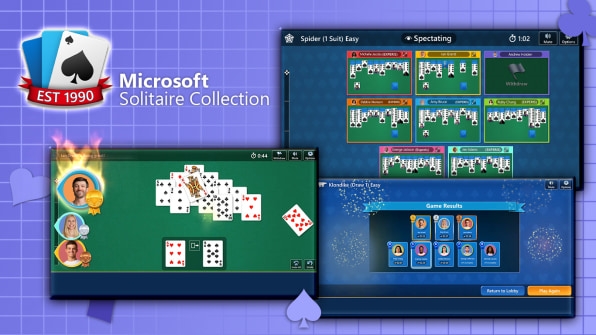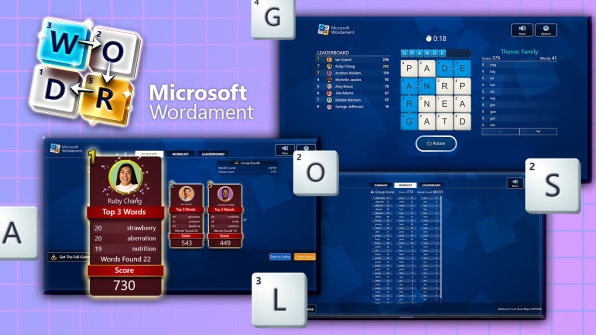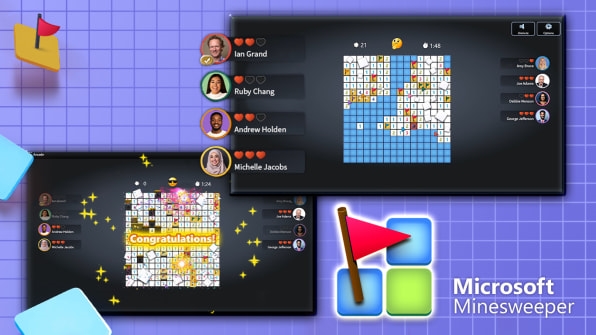Microsoft is rolling out multiplayer Solitaire and Minesweeper for its Teams platform
To help even physically separated coworkers find new ways to bond at work, Microsoft is rolling out multiplayer versions of some of its classic computer games, including Solitaire and Minesweeper.
The games, part of a new Games for Work app for Microsoft Teams, come after a 2019 Brigham Young University study cited by Microsoft found that newly formed work teams saw a 20% boost in productivity after 45 minutes of team video game play. The new app will give companies an easy way to set up play sessions with games with familiar rules, and some nostalgic appeal.

“People have been playing them, some of them, since they were kids,” says Nancy Baym, senior principal research manager at Microsoft. “It’s kind of like, if you own a bunch of decks of cards, why wouldn’t you leave them on the tables in the lounge?”
In addition to a competitive, not-so-solitary version of Solitaire that also allows for spectators, and a cooperative version of Microsoft that aims to let teams have fun practicing collective problem-solving, the games app includes a version of Microsoft’s Wordament, a find-the-word puzzle game similar to Boggle. Another game, called IceBreakers, is perhaps more of a traditional team-building tool, posing “this or that”-style questions, like asking players which of two pizza toppings they’d prefer.

The games are designed to accommodate groups of players from two to 250. In addition to the Brigham Young study, Baym points to Microsoft’s own research early in the pandemic that saw work teams organizing online gaming sessions to stay in touch, as well as her own experience playing the subterfuge-based card game Mafia with coworkers.
“My colleagues found out that I can lie really well—they were so shocked,” she says. “It was so fun.”

The new games, created in partnership with Microsoft Casual Games, an Xbox Game Studios team, aren’t the only play-based teambuilding tools to come out of the coronavirus era. The early days of social distancing in particular saw a burst of games designed or adapted for play on video chat apps like Teams or Zoom, from moderated online escape rooms and trivia sessions to digital icebreakers, as coworkers sought ways to stay in touch beyond stilted pre-meeting small talk and quickly maligned virtual happy hours. But in addition to the appeal to nostalgia for Minesweeper sessions during lazy days at the office or in the back of the middle school computer lab, the new games are available for free to Teams users and, once enabled, can be easily called up from within any Teams meeting.
Still, Baym says, it’s important to make sure that games stay playful, which means avoiding steering too much into mandatory fun.
“It’s really important that people not be required to play games,” she says. “They should not be playing games because they think they have to, because that’s not fun.”
(38)


